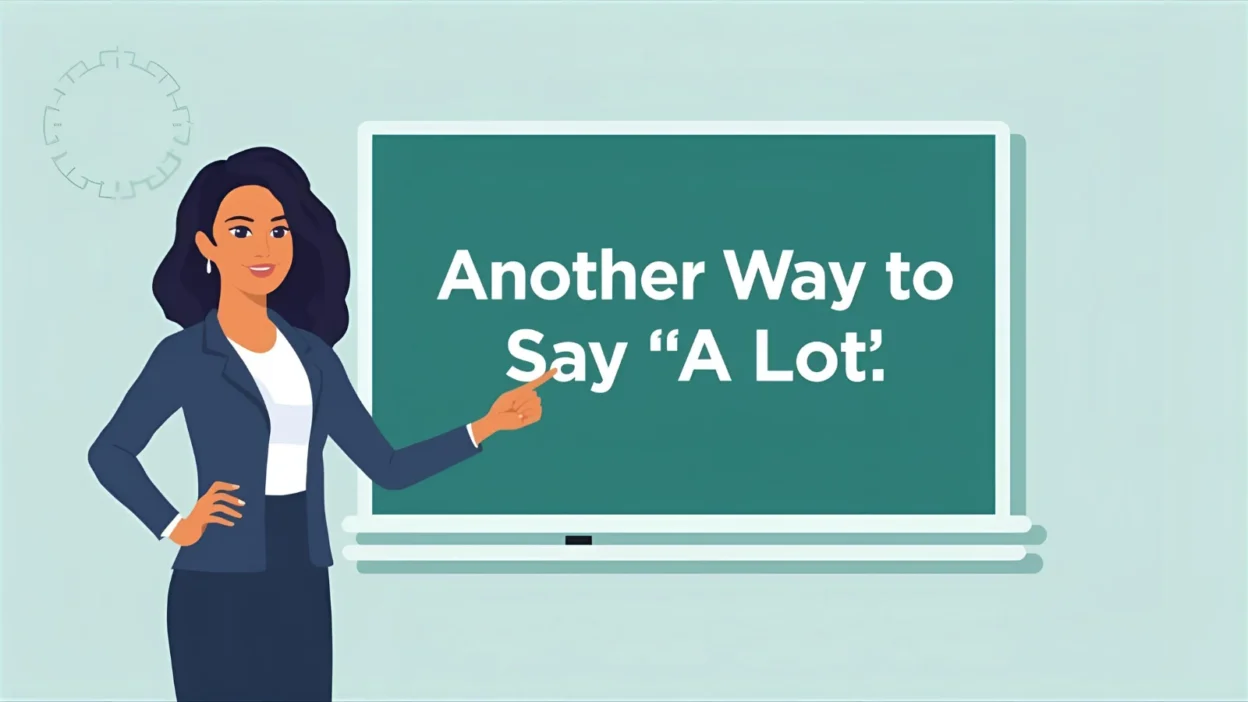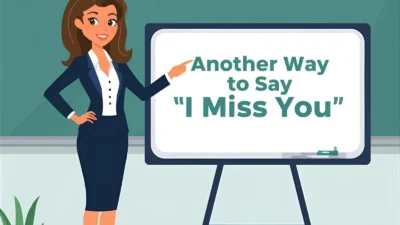The phrase “a lot” is one of the most common ways to express quantity, frequency, or intensity in English. While it’s widely understood and flexible, it often sounds informal and repetitive when overused in writing or speech. Fortunately, there are many synonyms and alternatives that can help you sound more precise, formal, or varied depending on the context.
In this article, you’ll discover 30 alternatives to “a lot,” each with meaning, explanation, usage examples, best context, and tone.
1. Many
Meaning: A large number of countable things.
Detailed Explanation: The most standard and formal alternative to “a lot” when referring to countable nouns.
Scenario Example: Many people attended the conference.
Best Use: Academic, business, formal writing.
Tone: Neutral, professional.
2. Numerous
Meaning: A great number of items.
Detailed Explanation: Slightly more formal than “many,” good for essays or reports.
Scenario Example: She has written numerous articles on the subject.
Best Use: Academic, professional contexts.
Tone: Formal, precise.
3. Plenty
Meaning: More than enough of something.
Detailed Explanation: Informal and friendly; emphasizes abundance.
Scenario Example: There’s plenty of food for everyone.
Best Use: Conversation, casual writing.
Tone: Relaxed, positive.
4. A great deal
Meaning: A large quantity, often with uncountable nouns.
Detailed Explanation: Common in formal and semi-formal contexts.
Scenario Example: He put a great deal of effort into the project.
Best Use: Essays, reports, professional writing.
Tone: Formal, thoughtful.
5. Abundant
Meaning: Existing in large quantities.
Detailed Explanation: Strong, formal alternative with emphasis on richness.
Scenario Example: The region is known for its abundant wildlife.
Best Use: Academic, descriptive writing.
Tone: Formal, descriptive.
6. Considerable
Meaning: Quite large in amount or degree.
Detailed Explanation: More formal, used to emphasize significance.
Scenario Example: The project required considerable resources.
Best Use: Reports, analysis, academic writing.
Tone: Professional, serious.
7. A large number of
Meaning: Many countable things.
Detailed Explanation: Clear and formal phrase for academic use.
Scenario Example: A large number of applicants submitted resumes.
Best Use: Academic, formal writing.
Tone: Formal, neutral.
8. Ample
Meaning: Enough or more than enough.
Detailed Explanation: Often used for opportunities, time, or resources.
Scenario Example: You’ll have ample time to finish the assignment.
Best Use: Academic, business, explanatory.
Tone: Formal, reassuring.
9. Scores of
Meaning: Dozens; a large but indefinite number.
Detailed Explanation: More expressive than “many.”
Scenario Example: Scores of fans gathered outside the stadium.
Best Use: Journalism, storytelling.
Tone: Vivid, emphatic.
10. Heaps of
Meaning: A large amount, usually informal.
Detailed Explanation: Colloquial, often used in everyday speech.
Scenario Example: She has heaps of homework to do.
Best Use: Informal speech, casual writing.
Tone: Relaxed, playful.
11. Tons of
Meaning: An exaggerated way to say “a lot.”
Detailed Explanation: Informal and hyperbolic.
Scenario Example: He’s got tons of energy.
Best Use: Conversation, casual contexts.
Tone: Informal, expressive.
12. Loads of
Meaning: A large amount.
Detailed Explanation: Very common in British English; casual tone.
Scenario Example: We’ve had loads of fun today.
Best Use: Informal speech, casual writing.
Tone: Friendly, casual.
13. Vast
Meaning: Extremely large in extent or amount.
Detailed Explanation: Stronger and more formal than “a lot.”
Scenario Example: The desert covers a vast area.
Best Use: Academic, descriptive, formal writing.
Tone: Serious, descriptive.
14. Amassed
Meaning: Collected or accumulated in large numbers.
Detailed Explanation: Often used for wealth, data, or items.
Scenario Example: They amassed a fortune through investments.
Best Use: Formal, professional writing.
Tone: Formal, precise.
15. Amassed quantities of
Meaning: Large accumulated amounts.
Detailed Explanation: Slightly emphatic, often used in formal writing.
Scenario Example: The study examined amassed quantities of data.
Best Use: Academic, technical contexts.
Tone: Formal, serious.
16. Ample amounts of
Meaning: More than sufficient.
Detailed Explanation: Highlights abundance and sufficiency.
Scenario Example: The library provides ample amounts of resources.
Best Use: Academic, business, instructional writing.
Tone: Professional, descriptive.
17. Immense
Meaning: Extremely large in size or quantity.
Detailed Explanation: Strong and dramatic.
Scenario Example: The project required an immense amount of effort.
Best Use: Academic, descriptive, persuasive writing.
Tone: Serious, emphatic.
18. Substantial
Meaning: Large, important, or significant.
Detailed Explanation: Emphasizes meaningfulness as well as size.
Scenario Example: She made a substantial contribution to the project.
Best Use: Professional, academic contexts.
Tone: Formal, weighty.
19. Endless
Meaning: Seemingly without limit.
Detailed Explanation: Figurative, adds exaggeration for effect.
Scenario Example: He has endless ideas for improvement.
Best Use: Storytelling, casual writing, motivational speech.
Tone: Dramatic, expressive.
20. Countless
Meaning: Too many to count.
Detailed Explanation: Emphasizes the overwhelming quantity.
Scenario Example: She has countless memories of her childhood.
Best Use: Storytelling, formal and informal contexts.
Tone: Neutral, vivid.
21. Multiple
Meaning: More than one; several.
Detailed Explanation: More formal and technical than “a lot.”
Scenario Example: The system had multiple errors.
Best Use: Academic, technical, professional.
Tone: Neutral, precise.
22. Copious
Meaning: Large in number or amount, often excessive.
Detailed Explanation: Formal, often used for notes, evidence, or resources.
Scenario Example: She took copious notes during the lecture.
Best Use: Academic, professional, descriptive writing.
Tone: Formal, intellectual.
23. Overflowing with
Meaning: Extremely full of something.
Detailed Explanation: Figurative and descriptive, adds imagery.
Scenario Example: The garden was overflowing with flowers.
Best Use: Creative writing, storytelling.
Tone: Expressive, vivid.
24. A wealth of
Meaning: A large, valuable amount.
Detailed Explanation: Often used for knowledge, experience, or resources.
Scenario Example: The professor shared a wealth of information.
Best Use: Academic, professional, descriptive.
Tone: Positive, formal.
25. A multitude of
Meaning: A great number of people or things.
Detailed Explanation: Strong, formal synonym.
Scenario Example: A multitude of stars filled the sky.
Best Use: Academic, formal writing, literature.
Tone: Elevated, descriptive.
Conclusion
While “a lot” is useful and widely understood, it can sound casual or repetitive in polished writing. Depending on the context, you might choose “many” or “numerous” in academic settings, “tons of” or “loads of” in everyday conversation, or more elevated terms like “copious” and “a multitude of” in descriptive writing. These 30alternatives let you express abundance with more variety, precision, and style.



